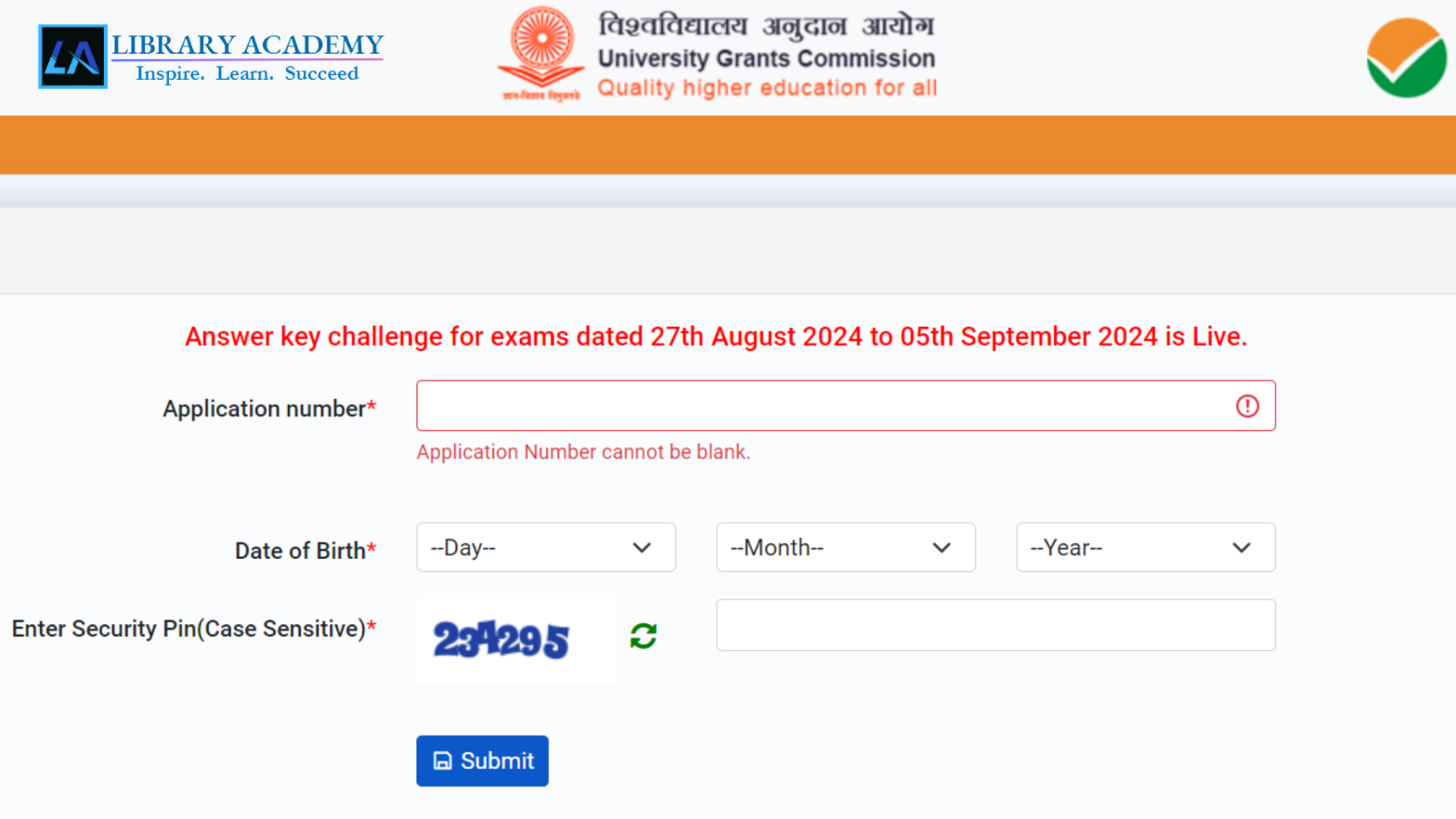The National Testing Agency (NTA) has officially released the provisional answer key for the UGC NET (University Grants Commission National Eligibility Test) Library and Information Science exam held on 3rd September 2024. Candidates who appeared for this exam now have the opportunity to review their answer sheets and challenge any discrepancies they may find in the provisional answer key.
Importance of the Answer Key Challenge Process
The answer key challenge provides a crucial opportunity for candidates to verify the correctness of their responses in the examination. The UGC NET exam is a highly competitive test, particularly for those aspiring to qualify for lectureship or secure a Junior Research Fellowship (JRF) in Library and Information Science. Ensuring that the evaluation is fair and transparent is paramount, and the challenge process plays an integral role in maintaining that standard.
Steps to Challenge the Answer Key
- Visit the Official Website: Candidates need to access the official NTA website or the UGC NET portal.
- Login with Credentials: Use your application number and password or date of birth to log in to the portal.
- View the Provisional Answer Key: Once logged in, you can view the question papers along with the provisional answer key.
- Select Questions to Challenge: If you find discrepancies or errors in the provisional answer key, select the specific question(s) for which you want to raise a challenge.
- Submit Supporting Evidence: For each challenged question, you will need to provide valid supporting evidence or documentation to justify your objection.
- Payment of Fees: A nominal fee (usually INR 200 per question) is required to submit a challenge. This fee is refundable if your challenge is found to be correct.
Deadline for Answer Key Challenge
Candidates must submit their challenges within the stipulated time frame set by NTA, typically 3-4 days after the release of the answer key. It is crucial to act promptly and ensure all objections are raised before the deadline.
Outcome of the Challenge
After reviewing the challenges submitted by the candidates, subject experts will analyze the objections. If any mistakes are found, the answer key will be revised accordingly. The final answer key, based on which results will be computed, will be released shortly after the challenge period ends. No further changes can be made once the final answer key is published.
Tips for Candidates
- Double-check all questions carefully: Ensure that your challenges are valid and backed by strong reasoning or sources from reliable study materials.
- Review your original responses: Before challenging any question, compare your answer with multiple sources if possible.
- Be mindful of deadlines: Late submissions will not be considered, so ensure you complete the process within the given window.
Conclusion
The answer key challenge for the UGC NET Library and Information Science exam is an essential process to ensure accuracy and fairness in the evaluation. Candidates are advised to review the provisional answer key carefully and make use of this opportunity to raise concerns about any discrepancies they find. With the right approach and evidence, candidates can play a role in ensuring the integrity of their results.
Stay updated with the latest notifications from the NTA to ensure you don’t miss out on any important dates regarding the answer key and result declaration.
UGC NET LIS Answer Key and Challenge: Click Here
 Subscribe YouTube Channel
Subscribe YouTube Channel

